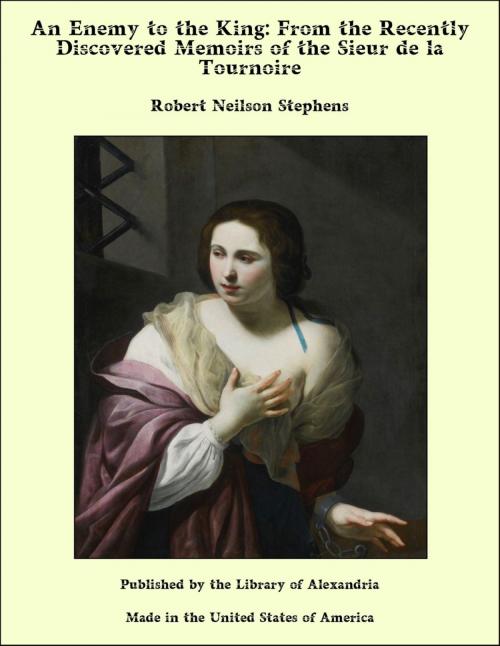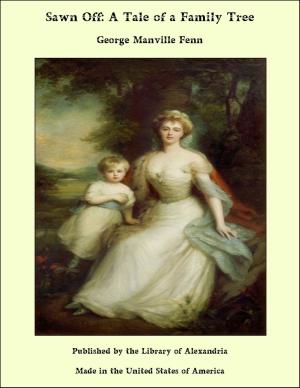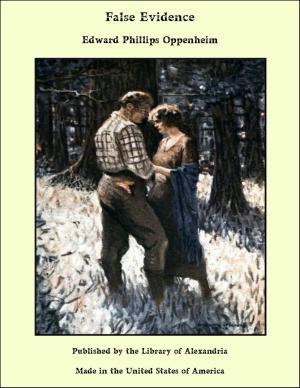An Enemy to the King: From the Recently Discovered Memoirs of the Sieur de la Tournoire
Nonfiction, Religion & Spirituality, New Age, History, Fiction & Literature| Author: | Robert Neilson Stephens | ISBN: | 9781465616746 |
| Publisher: | Library of Alexandria | Publication: | March 8, 2015 |
| Imprint: | Language: | English |
| Author: | Robert Neilson Stephens |
| ISBN: | 9781465616746 |
| Publisher: | Library of Alexandria |
| Publication: | March 8, 2015 |
| Imprint: | |
| Language: | English |
Hitherto I have written with the sword, after the fashion of greater men, and requiring no secretary. I now take up the quill to set forth, correctly, certain incidents which, having been noised about, stand in danger of being inaccurately reported by some imitator of Brantome and De l'Estoile. If all the world is to know of this matter, let it know thereof rightly. It was early in January, in the year 1578, that I first set out for Paris. My mother had died when I was twelve years old, and my father had followed her a year later. It was his last wish that I, his only child, should remain at the château, in Anjou, continuing my studies until the end of my twenty-first year. He had chosen that I should learn manners as best I could at home, not as page in some great household or as gentleman in the retinue of some high personage. "A De Launay shall have no master but God and the King," he said. Reverently I had fulfilled his injunctions, holding my young impulses in leash. I passed the time in sword practice with our old steward, Michel, who had followed my father in the wars under Coligny, in hunting in our little patch of woods, reading the Latin authors in the flowery garden of the château, or in my favorite chamber,—that one at the top of the new tower which had been built in the reign of Henri II. to replace the original black tower from which the earliest De Launay of note got the title of Sieur de la Tournoire. All this while I was holding in curb my impatient desires. So almost resistless are the forces that impel the young heart, that there must have been a hard struggle within me had I had to wait even a month longer for the birthday which finally set me free to go what ways I chose. I rose early on that cold but sunlit January day, mad with eagerness to be off and away into the great world that at last lay open to me. Poor old Michel was sad that I had decided to go alone. But the only servant whom I would have taken with me was the only one to whom I would entrust the house of my fathers in my absence,—old Michel himself. I thought the others too rustic. My few tenants would have made awkward lackeys in peace, sorry soldiers in war.
Hitherto I have written with the sword, after the fashion of greater men, and requiring no secretary. I now take up the quill to set forth, correctly, certain incidents which, having been noised about, stand in danger of being inaccurately reported by some imitator of Brantome and De l'Estoile. If all the world is to know of this matter, let it know thereof rightly. It was early in January, in the year 1578, that I first set out for Paris. My mother had died when I was twelve years old, and my father had followed her a year later. It was his last wish that I, his only child, should remain at the château, in Anjou, continuing my studies until the end of my twenty-first year. He had chosen that I should learn manners as best I could at home, not as page in some great household or as gentleman in the retinue of some high personage. "A De Launay shall have no master but God and the King," he said. Reverently I had fulfilled his injunctions, holding my young impulses in leash. I passed the time in sword practice with our old steward, Michel, who had followed my father in the wars under Coligny, in hunting in our little patch of woods, reading the Latin authors in the flowery garden of the château, or in my favorite chamber,—that one at the top of the new tower which had been built in the reign of Henri II. to replace the original black tower from which the earliest De Launay of note got the title of Sieur de la Tournoire. All this while I was holding in curb my impatient desires. So almost resistless are the forces that impel the young heart, that there must have been a hard struggle within me had I had to wait even a month longer for the birthday which finally set me free to go what ways I chose. I rose early on that cold but sunlit January day, mad with eagerness to be off and away into the great world that at last lay open to me. Poor old Michel was sad that I had decided to go alone. But the only servant whom I would have taken with me was the only one to whom I would entrust the house of my fathers in my absence,—old Michel himself. I thought the others too rustic. My few tenants would have made awkward lackeys in peace, sorry soldiers in war.















